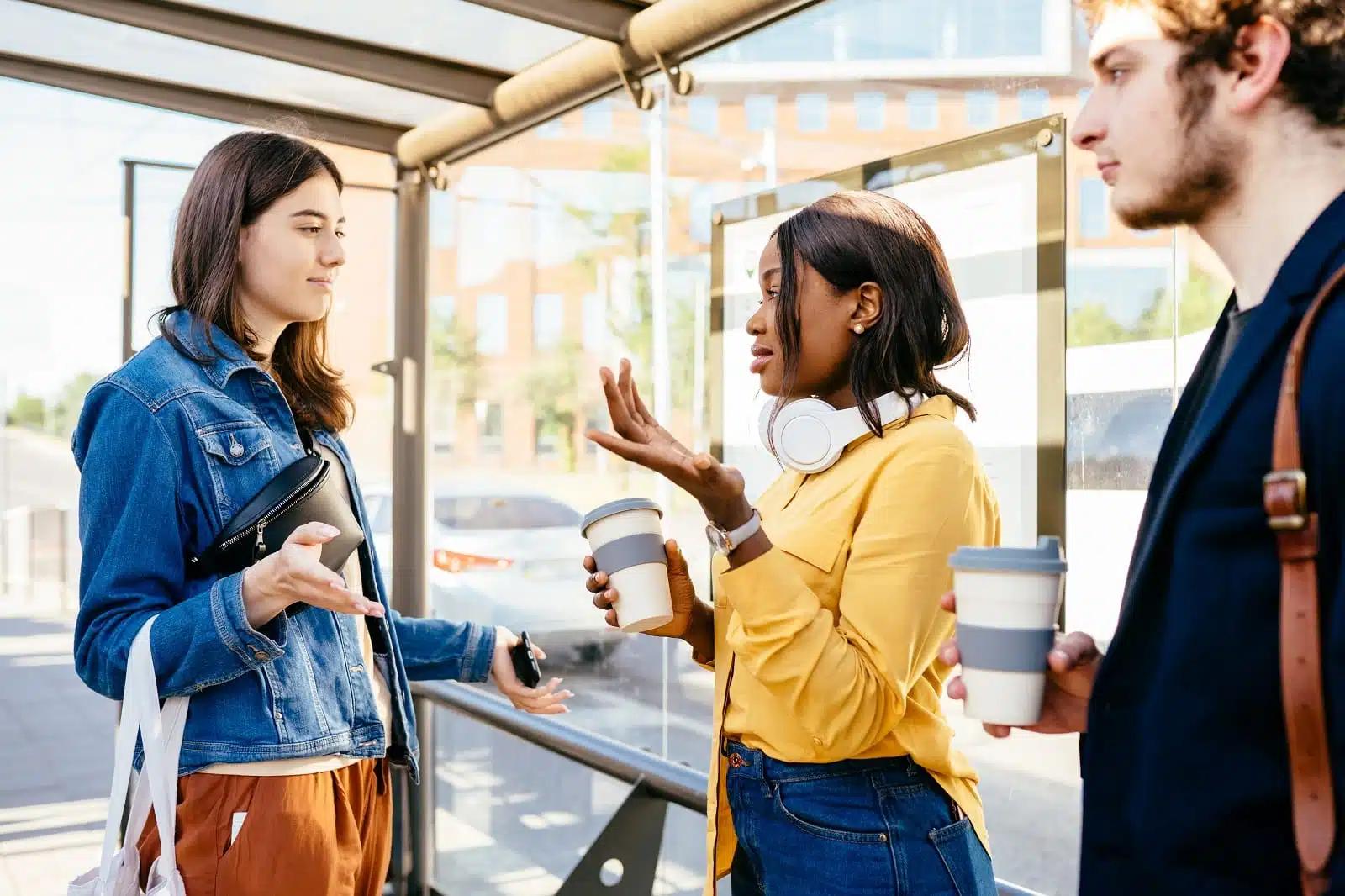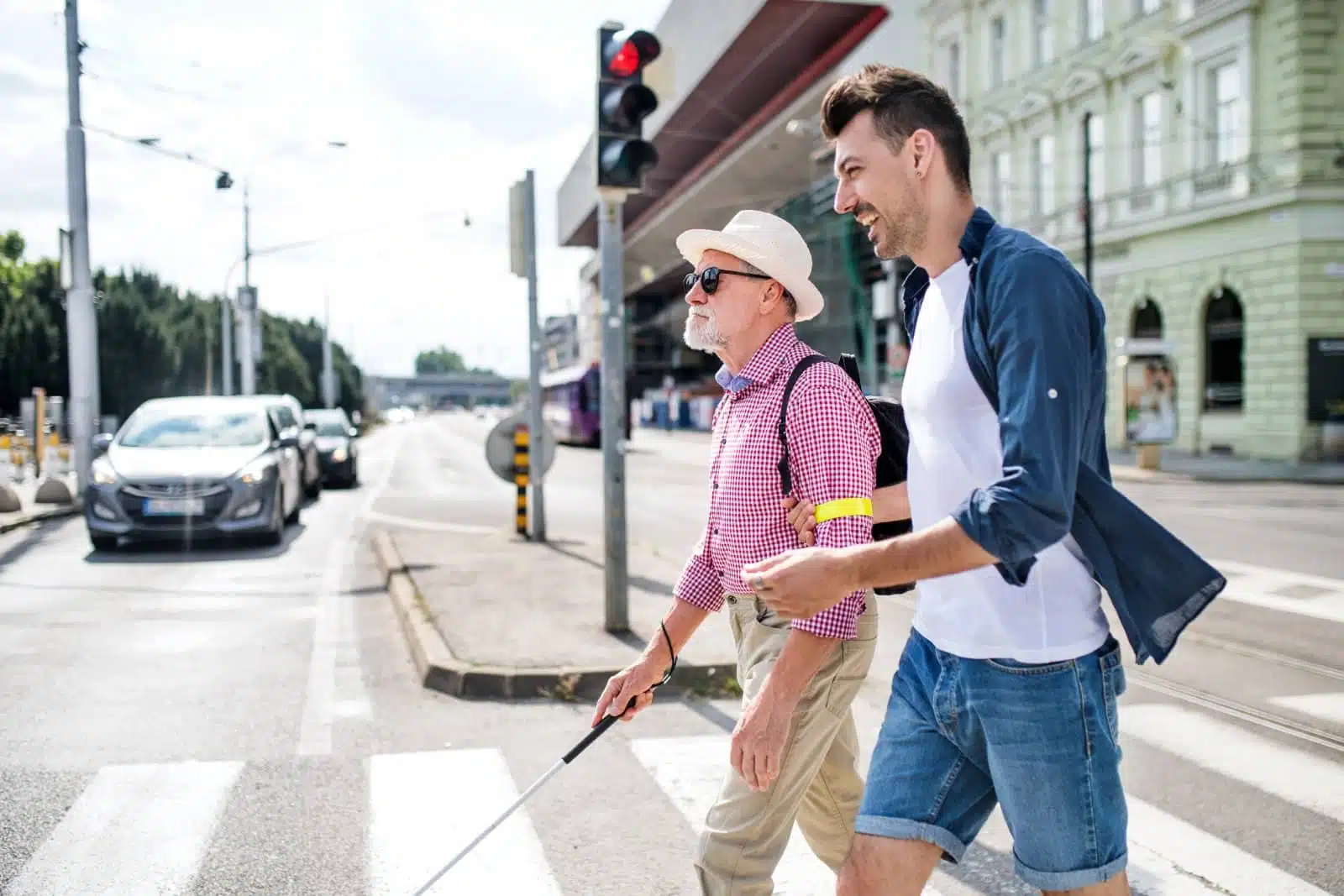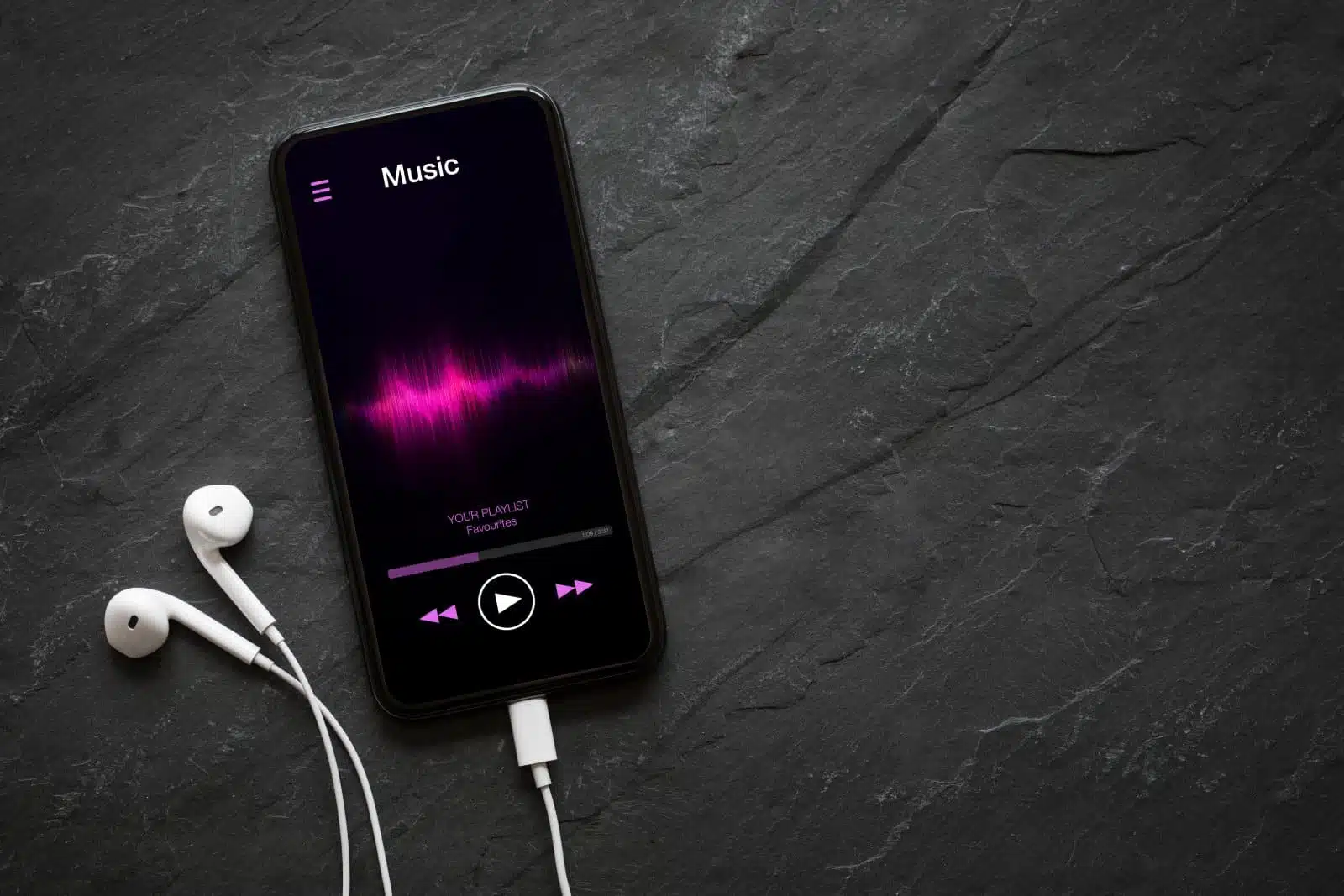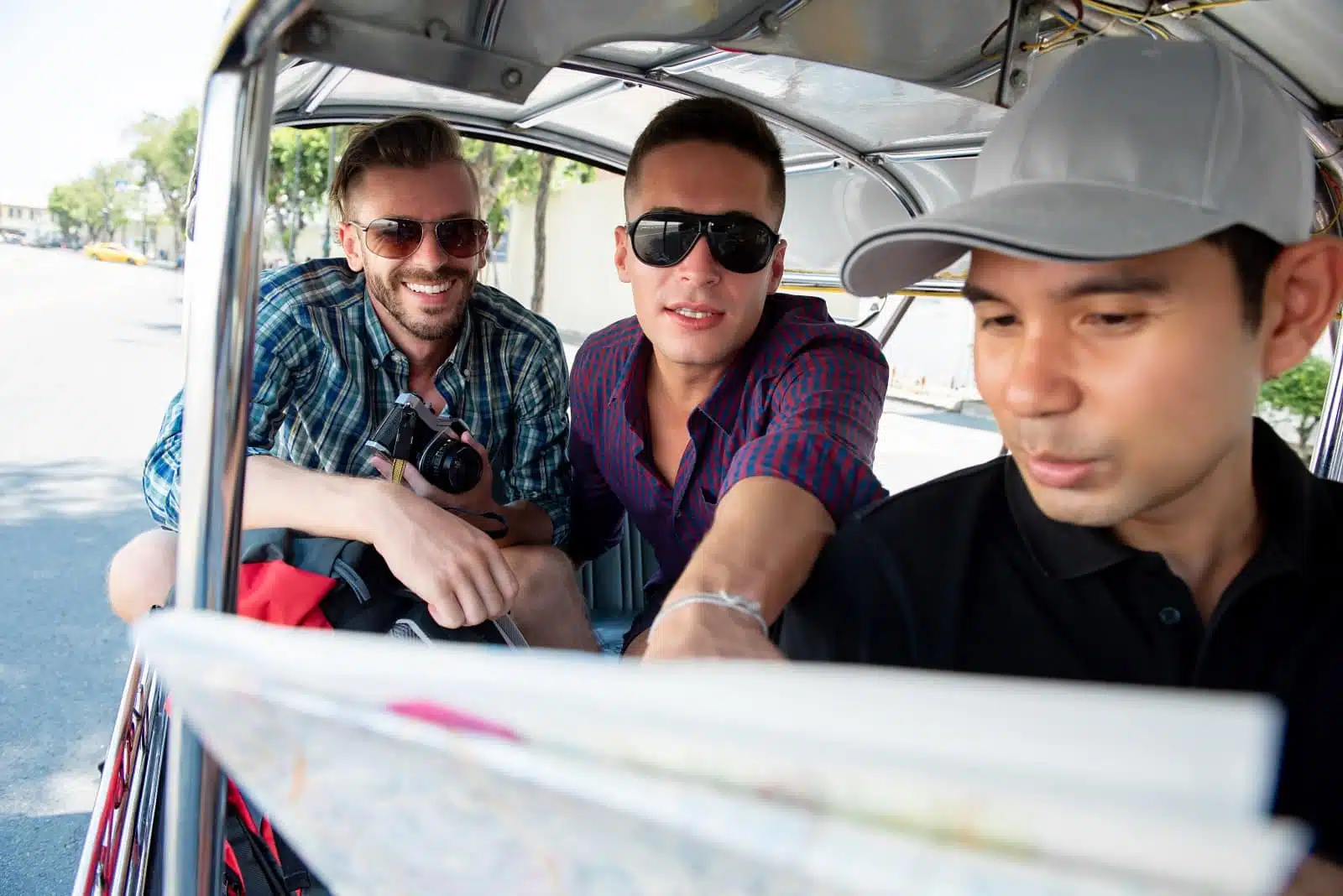Traveling from the land of the free and the home of the brave into territories where English isn’t the lingua franca can feel like stepping into an alternate universe. One where your trusty “excuse me” and “where’s the bathroom?” might earn you polite smiles but not much else. Fear not, intrepid American traveler! With a sprinkle of preparation and a dash of humility, you can navigate the linguistic labyrinths of non-English speaking lands. Here are 20 essential language tips to keep you from accidentally ordering a plate of snails instead of a glass of wine.
1. Master the Magic Words

Image Credit: Shutterstock / Delbars
“Please,” “Thank you,” and “Sorry” are your new best friends. Use them liberally to sprinkle kindness and goodwill wherever you go.
2. Learn the Local “Hello” and “Goodbye”

Image Credit: Shutterstock / Iryna Inshyna
Greeting and parting properly can earn you smiles and nods of approval, the universal currency of politeness.
3. The Power of “Do You Speak English?”

Image Credit: Shutterstock / Roman Samborskyi
Knowing how to ask this in the local language shows respect and often leads to more helpful interactions.
4. Download a Translation App

Image Credit: Shutterstock / kiuikson
In the digital age, your smartphone is the ultimate travel companion. Make sure it’s equipped with a translation app that works offline.
5. Carry a Phrasebook

Image Credit: Shutterstock / dodotone
Old school, but gold. A phrasebook is a reliable backup for when your phone inevitably dies at the most inconvenient moment.
6. Numbers Are Crucial

Image Credit: Shutterstock / littlenySTOCK
Learn to count at least up to 10. It helps with shopping, dining, and understanding when your train leaves at “drei” instead of “tre.”
7. Yes and No

Image Credit: Shutterstock / Ground Picture
It sounds simple, but knowing how to say “yes” and “no” can save you from agreeing to a four-hour mountain trek when you thought you were signing up for a wine tasting.
8. Emergency Phrases

Image Credit: Shutterstock / Fractal Pictures
“Help,” “Police,” and “I need a doctor” are grim but essential additions to your linguistic toolkit.
9. Smile and Gesture

Image Credit: Shutterstock / Krakenimages.com
When words fail, smiles and gestures speak volumes. Just be cautious with hand gestures; they’re not universal and you might accidentally insult someone’s mother.
10. Write It Down

Image Credit: Shutterstock / Ground Picture
Having your destination or hotel name written in the local script can be a lifesaver when lost in translation.
11. Food Allergies in the Local Tongue

Image Credit: Shutterstock / wee dezign
If applicable, learn how to communicate any dietary restrictions or allergies. It’s the difference between a memorable meal and a visit to the local ER.
12. The Art of Apology

Image Credit: Shutterstock / Sun Shock
Learning how to say “I’m sorry, I don’t speak [local language]” is an act of humility and respect that can endear you to locals.
13. Listen and Repeat

Image Credit: Shutterstock / Kaspars Grinvalds
Tune your ear to the language by listening to local music or radio before your trip. Mimicry is the sincerest form of flattery, after all.
14. Embrace Mistakes

Image Credit: Shutterstock / Antonio Guillem
You will make mistakes, and that’s okay. Locals often appreciate the effort, even if you accidentally ask for a penguin instead of the bill.
15. Simplify Your English

Image Credit: Shutterstock / Olesia Bilkei
If you must speak English, use simple words and speak slowly. Not everyone learned English from a native speaker.
16. Cultural Nuance

Image Credit: Shutterstock / Just Life
Understand that language is tied to culture. A direct translation of “What’s up?” might leave someone genuinely wondering what’s supposed to be up.
17. The Courtesy of Trying

Image Credit: Shutterstock / Look Studio
Even a butchered “Good morning” in the local language can open doors and hearts.
18. Non-verbal Cues

Image Credit: Shutterstock / Dmytrenko Vlad
Pay attention to non-verbal communication. Nods, bows, and facial expressions can carry significant meaning.
19. Local Slang With Caution

Image Credit: Shutterstock / Lyubov Levitskaya
Using local slang can be fun, but use it with caution. You want to sound friendly, not like you’re trying too hard.
20. Practice Makes Perfect

Image Credit: Shutterstock / Atstock Productions
Don’t be shy. Practice your new language skills at every opportunity. The best place to learn is always on the ground, in conversation.
Speak With Confidence

Image Credit: Shutterstock / AboutLife
Embarking on a journey armed with these linguistic tools won’t just make your travels smoother; it’ll enrich your experiences, deepen connections, and maybe even earn you a free round of drinks at a local bar. Remember, the goal isn’t fluency but the effort to bridge cultures, one mispronounced word at a time. Happy travels, and may your language blunders be few and your adventures many!
More From The Green Voyage
Top 10 Trending Travel Destinations 2024
6 Essential Banking Apps for International Travel – Managing Your Finances on the Go
Traveling With Kids – 10 Tips to Create Memorable Family Holidays
The post 20 Essential Language Tips for Americans Venturing into Non-English Speaking Territories first appeared on The Green Voyage.
Featured Image Credit: Shutterstock / Alliance Images.
For transparency, this content was partly developed with AI assistance and carefully curated by an experienced editor to be informative and ensure accuracy.
Tips for Trip Success
Book Your Flight
Find an inexpensive flight by using Kayak, a favorite of ours because it regularly returns less expensive flight options from a variety of airlines.
Book Your Hotel or Special Accommodation
We are big fans of Booking.com. We like their review system and photos. If we want to see more reviews and additional booking options, we go to Expedia.
You Need Travel Insurance!
Good travel insurance means having total peace of mind. Travel insurance protects you when your medical insurance often will not and better than what you get from your credit card. It will provide comprehensive coverage should you need medical treatment or return to the United States, compensation for trip interruption, baggage loss, and other situations.Find the Perfect Insurance Plan for Your Trip
